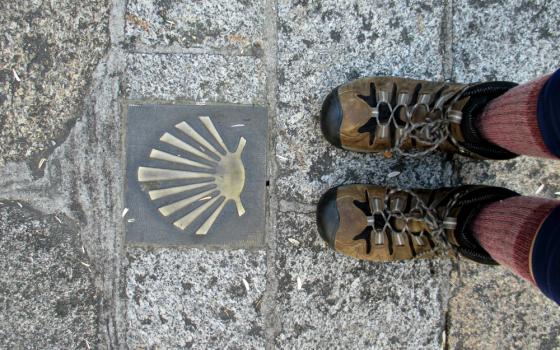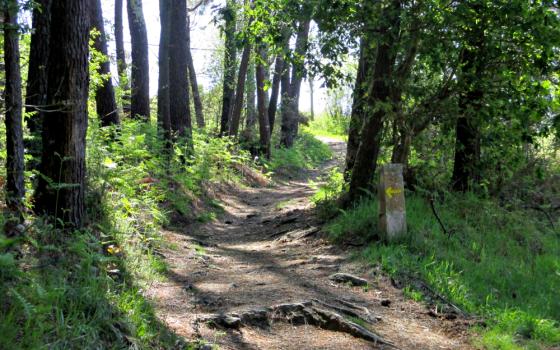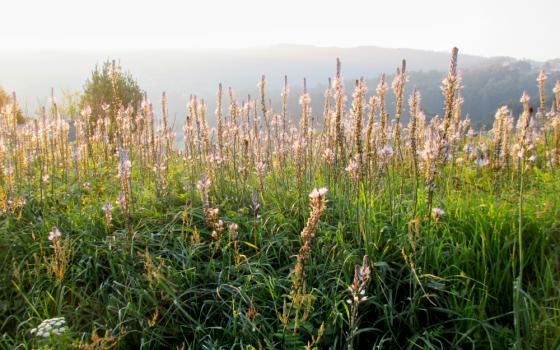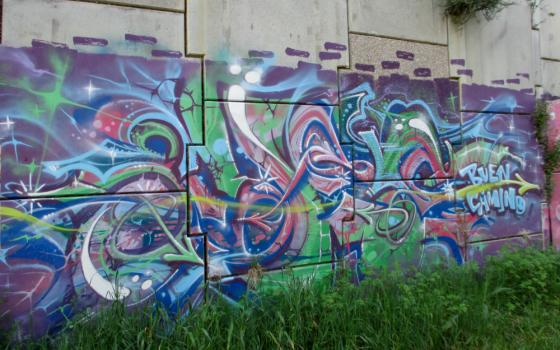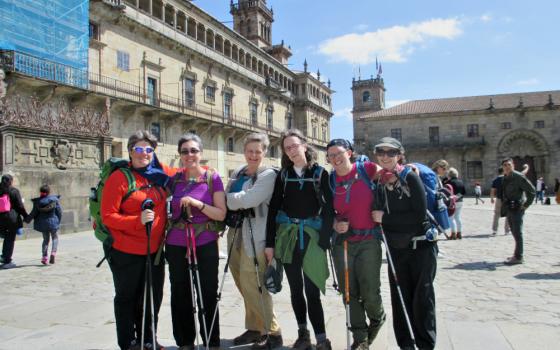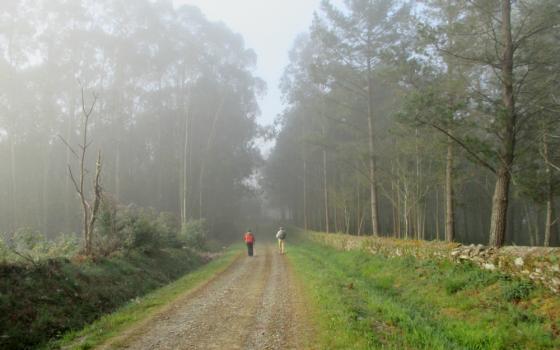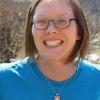Since high school, I've been teaching the Christian faith to others. In parishes, classrooms, and while camping in the woods, I've taught songs, explained Bible stories, instilled virtues and asked students to memorize definitions and lists. And, occasionally, over the years, a thoughtful youngster in one of those settings would interrupt my enthusiastic lectures and ask an appropriate question: But what is faith?
Oh, it's a theological virtue along with hope and love, I'd say. "Faith is the realization of things hoped for and evidence of things not seen" (Hebrews 11:1), I'd recite. Or I'd offer a paraphrased combination of the words from the Catechism of the Catholic Church: Faith is belief in God and all God has revealed through the church.
And even though I have confidently spewed out strings of words attempting to define the virtue, I honestly don't understand what faith is. Yes, I know: Faith is a virtue. Faith is a principle. Faith is a force. I know all this, and I experience its power over my life.
But define it? My mind might as well be put into a blender of abstraction, turned to high and left on for a solid hour. I hate to admit it, but the racket of me aiming to contain the power of this word into a string of more words has likely been inadequate, and even possibly destructive over the years.
I only realized this recently. A few weeks ago, while walking the Camino de Santiago in Spain, I began to ponder the mysterious nature of faith and how it directs my life. Here I was, walking a path that thousands have walked for hundreds of years because of their devotion and faith, passing stone churches centuries old, pondering holy words and moving among other religious people who put their fidelity into motion, step by step, step by step. There, among all those expressions of faith, I realized I wasn't so sure what faith was.
It seems I had to step out my routine, become a pilgrim, and get in touch with my vulnerabilities for me to be humbled. Pilgrimage is an experience of stripping, of detaching from those blinders that have blocked a grasp of the truth.
Months prior to the pilgrimage, I booked a plane ticket to Spain and started acquiring gear because I believed, of course, that I'd be able to do it. Although I had never before done such a thing like walking more than 100 kilometers in less than a week, I was lining up my life to go on the journey because my confidence and faith were stronger than insecurities.
But then we began walking. Poles clicking, breath huffing, dust stirring, we moved along sidewalks, streets, over bridges and through neighborhoods. It wasn't until the afternoon of the first day, when we found ourselves out of the urban area, weaving up and down hills under pines and eucalyptus trees, that doubts started to chip away at my faith that I could do it, that I could really walk all the way to Santiago.
Feeling my aching legs and feet beneath me, a bright hot sun overhead, and waves of exhaustion starting to churn, I longed to roll into the ditch and close my eyes. The path and the roads began to feel endless and the layers of sweat and grub thickened. Questions about another word began to stir: Is this only endurance that is keeping me going?
Each day we walked, I crossed a crack unnoticed. On one side was the energetic, peppy, confident pace that found joy in the rhythm of walking. And on the other side of the crack was the part of the day that felt like drudgery and impossibility, when pain cycled through me to the tune of a negative mantra: My feet hurt, my feet hurt.
Along the way, perseverance began to have a new meaning for me, too. I made the effort to redirect my mind from complaints to tuning into what was necessary and helpful. It seemed the Spirit whispered suggestions: Move slowly, take breaks, drink water, enjoy beauty. My thoughts shifted as I followed the prompts: Thank you, thank you, thank you. Yet, my doubts that I could actually walk all the way to Santiago didn't vanish.
On the longest, hardest day of the pilgrimage, I walked with my friend whose feet had broken out in an awful combination of heat rash and blisters. Several people had discouraged her from walking that day, since we had to walk about 20 kilometers and then go over a mountain. Take taxi numbers with you. There is no shame in taking care of yourself.
We steadily inched forward and took frequent breaks to care for our feet. I told my friend that it was up to her, she got to decide whether we would quit and call a taxi or not — and then I secretly hoped that she would, because I didn't know how I could possibly continue. That night, we arrived well after dark, flashlights bobbing and limping to our destination. But we made it!
With tears in our eyes, exhausted and sore, we admitted that we each would have quit if we had been walking alone. Confidence is built up by companionship, it seems.
Confidence can also help to construct faith. After experiencing such an accomplishment — after countering the agony of doubt with an embodiment of faith — the rest of the pilgrimage felt graced. I started to wonder what else in my walk with God, in the world overall, was actually possible that I had dismissed as unattainable or unlikely. The pain and exhaustion lingered, but I no longer doubted I would arrive. Faith, it seems, was winning.
The night we arrived, Holy Saturday, I made my way through the dark medieval streets to the Cathedral of Santiago. I climbed the stairs, leaning on the railing to steady my limping as I went up the steps and through the ancient doors.
As I entered, the assembly was standing silently. I wove my way through the pillars, beside gray stones, to glimpse the candlelight procession in the back of the church, where a retinue of priests in white vestments proclaimed, La luz de Christo!
In unison with hundreds of faithful people, I chanted in response, Gracias a Dios!
I rested in a spot at the base of a giant pillar next to pews packed with pilgrims and followed along with the readings and prayers in my English prayer book. As I prayed, my eyes moistened with tears, my chest shook with sobs. I don't understand this. I can't make sense of any of it. But I do believe this, I know it deeply. I feel this truth with all I am.
After the proclamation of the story of our faith, the bishop stands in the center of the church, preaching. I don't understand what he is saying, so I am lost in myself, in my own prayers and thoughts about the ineffable magnitude of faith's mystery. But then, I am jolted to attention when the bishop suddenly speaks a little English. He seems to summarize my entire journey, the pilgrimage that has redefined many words for me: Welcome to this holy place. Your being here expresses the strength of your faith.
[Julia Walsh, is a Franciscan Sister of Perpetual Adoration, a retreat presenter and a blogger who can be found online at MessyJesusBusiness.com.]
